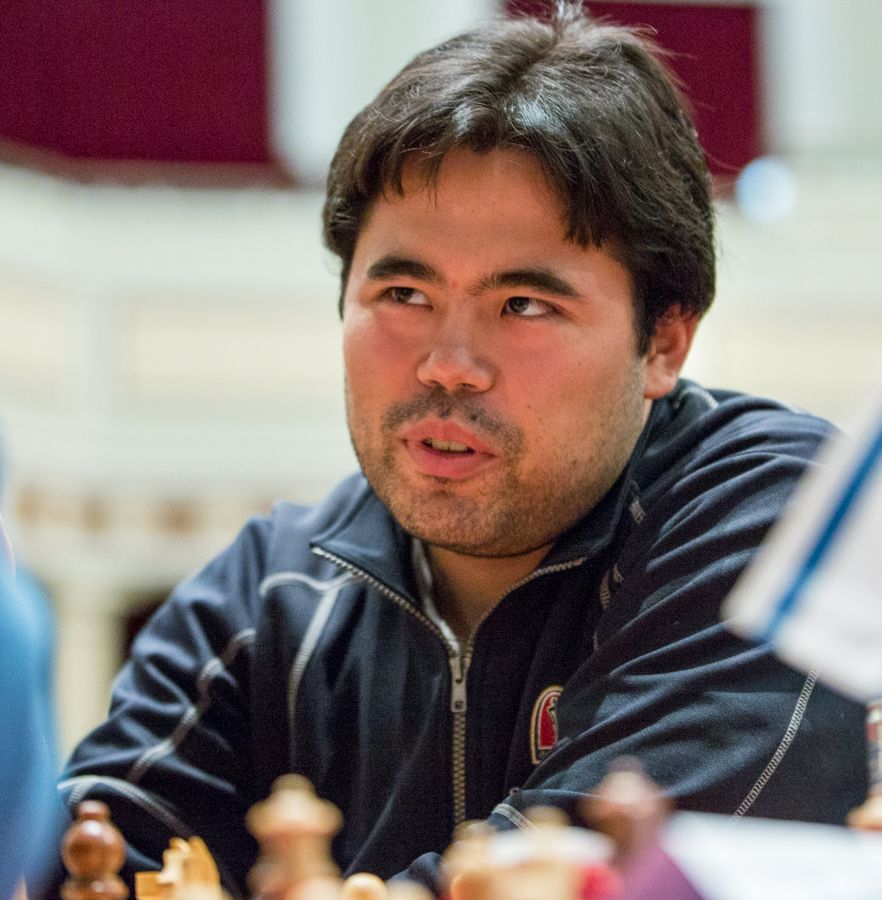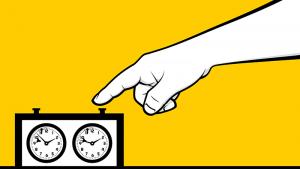
The Blitz Chess Manifesto
May 28, 1992. Moscow.
The newly-established Russian Federation is enmeshed in social and economic tumult following the dissolution of the USSR. But chess fans have been treated to a small respite: a blitz tournament, broadcast live on television, is taking place at the Central Journalists’ House on 8 Nikitsky Boulevard. The field is mouthwatering, featuring top Russian grandmasters and headlined by none other than the reigning world champion Garry Kasparov.
But the center of attention is not on Garry. It is on the gaunt figure who sits across the board from him. Clad in a dark blazer, eyes furrowed in concentration, the man executes his moves with practiced confidence and breathtaking speed. He sacrifices a knight in a Sicilian, and the resultant complications prove too complicated even for Garry.
His flag falls just as he is about to beat back the attack.

Nikitsky Boulevard in Moscow.
The gaunt figure is a terminally ill Mikhail Tal. Exactly one month later, on June 28, 1992, the Magician from Riga, aged 55, died. As Genna Sosonko famously put it, “all of his organs had stopped functioning".
Yet the Grim Reaper himself could not stop Misha Nekhemyevich from having himself one last session of blitz. And a damn good session at that.
I decided to start with this heartwarming vignette not because it is unique, but precisely because it isn’t unique. There are very few chess players whose interest in the classical form of the game isn’t equaled — or even superseded — by a fascination with blitz. The advent of online chess servers, coupled with ever-increasing Internet accessibility around the world, has enabled chess enthusiasts of every level and nationality to satisfy their craving for speed chess, and has contributed to the surging popularity of super-tournaments with reduced time controls.
Despite these trends, chess literature on blitz improvement is virtually nonexistent. My dogged search revealed only a handful of sources: there is a 2005 book by the USCF expert James Maxwell, a recent monograph by GM Evgeny Sveshnikov and his son that offers an opening repertoire tailored to blitz, and several excellent streamers who offer informative commentary while they play. But to my knowledge, no serious blitz player has produced a full-length instructional course on how to get better at blitz.
In "The Blitz Manifesto"—my new bi-weekly column—I will endeavor to provide a comprehensive guide to blitz mastery. There are probably a thousand questions on the tip of your tongue. Why blitz? What topics will you cover? What makes you a “serious blitz player”? Why should I read about blitz when I can play blitz? Stop talking and get on with it already!
The short answer: all in due time. To lay the foundation, I will address four critical questions that will give you a better sense of what this column is all about. More important, we will begin to negotiate the treacherous path to blitz mastery.
Question 1: What makes you a blitz specialist, Daniel?
Without a doubt, the name most commonly associated with blitz stardom is Hikaru Nakamura. Ever since his formative days playing on the Internet Chess Club under the handle “Smallville,” Hikaru has dazzled kibitzers with his otherworldly speed, tactical precision, and breathtaking tenacity. As of today, his blitz rating on Chess.com is 3014. He is the best consistently-active blitz player in the world, end of story.

Nakamura. | Photo: Maria Emelianova/Chess.com.
My blitz pedigree is laughable in comparison. I’ve been a blitz addict for well over a decade, amassing roughly 30,000 total rated games across various online servers. On Chess.com, my rating fluctuates between 2800 and 2900, putting me within striking distance of the top-10 active players on the site. With that said, my blitz skill isn’t really anything to write home about. I'm fast—but not that fast. My tactics are decent, but rare is the occasion when I play two consecutive games without leaving a piece en prise. In short, I consider myself a good blitz player, but if you are looking for a recipe to defeat Hikaru, you've come to the wrong place.
I believe that I am qualified to write this column because I have made a concerted attempt through the years to develop a blitz style that is both creative and fundamentally sound. Consequently, the advice I will share in this column is tied to my classical chess style and to my blitz philosophy. I do not claim to be imparting the blitz manifesto (so Karl Marx can rest easy), but rather a blitz manifesto that has worked for me. Here is a recent specimen that illustrates both the good and the bad of my style.
Question 2: I like blitz, but who cares about online ratings!? I want to win over-the-board tournaments, not three-minute matches!
There are two lines of thinking that made me put this valid point aside. First, I argue that while online ratings themselves are not important, what these ratings reflect carries far more weight. If you spend a sizable portion of your time playing blitz, then—at the risk of putting words in your mouth—it seems reasonable to conclude that you want to realize your full potential. Our days on this planet are not infinite, so if you're in for a penny, why not go the full nine yards?
Second, the divide between blitz and classical chess is not as wide as one might think. In fact, I strongly believe that when taken seriously, blitz can be used as a powerful and versatile training tool for classical improvement. Although the correlation between the two is far from linear (more about this in the subsequent question), in my own experience there have been plenty of lessons that I have learned while moving a mouse and then successfully applied on a wooden board. One such instance took place at last year's U.S. championship.
Question 3: There is obviously some level of correlation between classical improvement and blitz improvement. Since my time is limited, does it really make sense to allocate time specifically for blitz improvement?
The short answer is an emphatic yes. Make no mistake: I am not claiming that mastering the intricacies of pre-moving will enable you to sweep the field at the World Open. At the same time, as mentioned earlier, if you are indeed passionate about blitz, then streamlining your improvement in this area may bring about a good deal of personal fulfillment. Furthermore, I will write each article in this column with two supplementary aims in mind:
1. At all times, I will do my utmost to ensure that as much advice as possible is at least tangentially applicable to classical chess. We will not be examining blitz in a vacuum; at times, we will analyze over-the-board games to see how knowledge acquired in blitz can be successfully transferred to the board. My game against Robson is a case in point.
2. Each article will be readable and digestible in 15 minutes or under. As you may know from my previous articles, I believe that playing through deeply-annotated games significantly enhances one's learning experience. Blitz games are no exception. However, I will attempt to design each article so that all of the main points are emphasized in the text. If you are pressed for time, you will always be able to benefit from the article without having to look through every variation through a magnifying glass.
Finally, it is important to note that not all great over-the-board players are as (comparably) good at blitz, and vice-versa. In a sense, attaining blitz mastery requires looking at the game through a different set of lenses. And if you're experiencing a slump in your over-the-board improvement, then this change of perspective may very well lead to positive developments in your motivation and classical playing strength.
Question 4: All right, let’s get down to business. What exactly are you going to cover, and what will your subsequent articles look like?
If you think I’m going to reveal a lot about the column in the introduction, think again! It would spoil the fun. What I can say is that blitz offers untold treasures in terms of instructive material: just think about how many online blitz games have been played, and how few of them are well-known! While I will (sometimes) make an accent on my own blitz games, I will certainly not limit myself to my own pitiful blitz career. There will be games from players of every level, from every online server, and from every time period since the dawn of the time...or rather, the dawn of blitz.
A few additional clarifications are in order. I consider 3+0 to be the standard time control for blitz, but my points will be equally as applicable with a modified time control, such as 5+0 or 3+2, or even in rapid games. On a related note, the vast majority of blitz games these days take place on the Internet, which means that a portion of articles will be written with an eye toward success in Internet blitz. However, I will also make digressions to discuss certain dynamics specific to over-the-board blitz, and many of the illustrative games will be drawn from tournaments such as the World Blitz Championship. After all, this tournament is the only thing in the universe that will actually get me out of bed and in front of my computer at 5 A.M.
Finally, I hope that this column will, in due course, take on a collaborative nature. The reason I did not title it "Naroditsky's Blitz Manifesto" is because I hope that you, the reader, will play an integral role in its development. I encourage any agreement, dissent, praise, criticism, or other contributions in the comments section, so long you adhere to the basic standards of courtesy and respect. Share your experiences; call me out; debate my arguments; ask as many questions as your heart desires. We are in this together. Given the scarcity of material on blitz improvement, this is new territory for all of us, including me. Safety in numbers, as they say.
But, all in good time. It's time for my nightly blitz session. I will leave you with one of my fondest blitz memories, a game that was played almost a decade ago and that served as one of the watershed moments in my blitz addiction.






